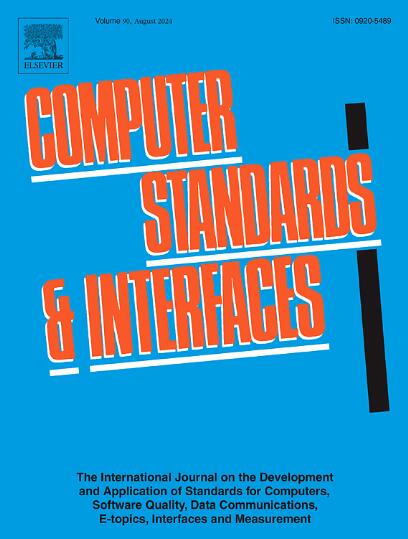基于区块链的多用户数据完整性审计,支持认知物联网网络的安全用户撤销
IF 4.1
2区 计算机科学
Q1 COMPUTER SCIENCE, HARDWARE & ARCHITECTURE
引用次数: 0
摘要
基于大数据的认知计算推动了认知物联网(IoT)的发展,通过对共享数据的分析增强了自适应决策,同时对大规模实时数据的存储和多用户共享提出了挑战。分散的云存储是一种很有前途的解决方案,可以减少延迟和防止单点故障,但防止错误决策的关键因素在于共享数据的完整性。然而,分散存储和共享存储中的完整性审计通常涉及线性开销,被撤销的用户可能与云提供商勾结以逃避审计。为了解决这些问题,我们提出了一种基于区块链的认知物联网多用户数据完整性审计协议,支持分散存储中的安全用户撤销和批处理审计。该协议将组用户划分为不同的类别,并对组用户进行高效、动态的管理。此外,存储在各个存储节点上的文件可以被批量审计,并根据新的块标记有效地更新。部署在区块链上的智能合约确保了参与者之间的公平。正式证明了该协议在随机oracle模型和代数群模型下的安全性,特别是对合算攻击的安全性。最后,我们分别对链上操作和链下操作的成本进行了评估,以证明其实用性。本文章由计算机程序翻译,如有差异,请以英文原文为准。
Multiuser data integrity auditing atop blockchain with secure user revocation for cognitive IoT networks
Cognitive computing over big data has advanced the cognitive Internet of Things (IoT), enhancing adaptive decision-making by the analysis of shared data, while posing challenges in the storage and multi-user sharing of large-scale real-time data. Decentralized cloud storage is a promising solution to reduce latency and prevent single-point failures, but a key factor in preventing erroneous decisions lies in the integrity of shared data. However, integrity auditing in decentralized and shared storage typically involves linear overheads, with revoked users potentially colluding with cloud providers to evade audits. To address these issues, we propose a blockchain-based multiuser data integrity auditing protocol for cognitive IoT, supporting secure user revocation and batch auditing in decentralized storage. Our protocol classifies group users into different categories and manages group users efficiently and dynamically. Besides, files stored across various storage nodes can be audited in batches and effectively updated based on novel block tags. Smart contracts deployed on the blockchain ensure fairness among participants. We formally prove the security of the protocol in the random oracle model and the algebraic group model, in particular, against collusion attacks. Finally, we evaluate the cost separately for on-chain operations and off-chain operations to show its practicality.
求助全文
通过发布文献求助,成功后即可免费获取论文全文。
去求助
来源期刊

Computer Standards & Interfaces
工程技术-计算机:软件工程
CiteScore
11.90
自引率
16.00%
发文量
67
审稿时长
6 months
期刊介绍:
The quality of software, well-defined interfaces (hardware and software), the process of digitalisation, and accepted standards in these fields are essential for building and exploiting complex computing, communication, multimedia and measuring systems. Standards can simplify the design and construction of individual hardware and software components and help to ensure satisfactory interworking.
Computer Standards & Interfaces is an international journal dealing specifically with these topics.
The journal
• Provides information about activities and progress on the definition of computer standards, software quality, interfaces and methods, at national, European and international levels
• Publishes critical comments on standards and standards activities
• Disseminates user''s experiences and case studies in the application and exploitation of established or emerging standards, interfaces and methods
• Offers a forum for discussion on actual projects, standards, interfaces and methods by recognised experts
• Stimulates relevant research by providing a specialised refereed medium.
 求助内容:
求助内容: 应助结果提醒方式:
应助结果提醒方式:


